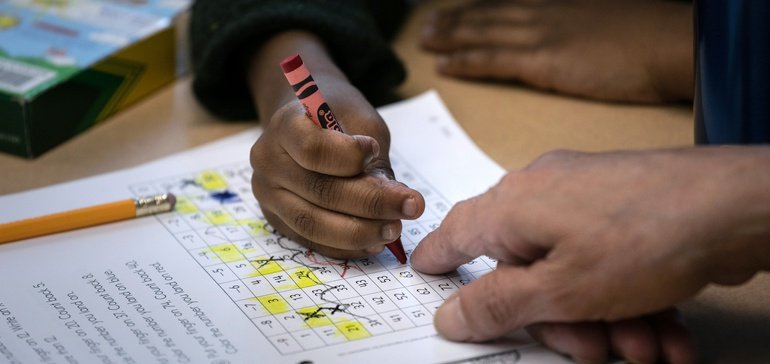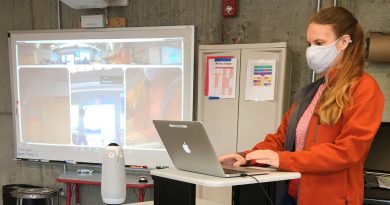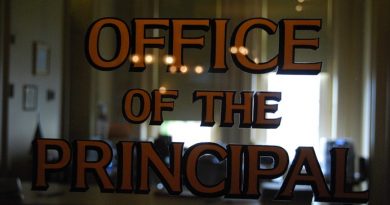Ed Dept announces communities of practice to accelerate learning, support kindergartners
Dive Brief:
- A new community of practice announced Thursday by the U.S. Department of Education aims to assist states and districts plan and paying for evidence-based programs to help accelerate learning for students, particularly those most impacted by the ongoing pandemic.
- The second community of practice will investigate strategies to specifically help kindergartners prepare for early school success and learning recovery. This effort will address social-emotional development, family engagement, access disparities to in-person learning, and dips in school enrollments.
- To counter the academic setbacks students experienced, educators at the federal, state, and local levels say there is pressure to implement effective and equitable interventions with urgency and fidelity. While examples are abundant about strategies being tried, these new communities of practice will help to formally make connections among practitioners leading these efforts.
Dive Insight:
The communities of practice aim to help school systems build capacity to implement interventions so the efforts best address students’ needs. State education systems were invited to apply to participate.
“Students across the country have felt the impact of school building closures as a result of the pandemic,” U.S. Secretary of Education Miguel Cardona said in a statement. “While the good news is that nearly 100% of America’s schools have now returned to in-person instruction, we must provide the necessary supports to nurture all students’ social-emotional well-being, mental health, and positive academic outcomes by addressing the impact of lost instructional time.”
Students who identified as English learners, with disabilities, of color, or as LGBTQ had difficulties with access to education during the pandemic. Additionally, nearly all students have experienced mental health challenges, according to a report released by the Education Department in June.
The Elementary and Secondary School Emergency Relief fund, including $123 billion from the American Rescue Plan, is expected to help close opportunity gaps. An analysis of state ARP documents by FutureEd shows learning recovery efforts include student support programs such as high-quality curriculum, positive school climates, high-dosage tutoring, data quality improvements, strengthening family and community connections, and more.
From the start of the pandemic, educators have aimed to prevent academic regression and rolled out initiatives to help catch students up academically, such as expanded summer learning options at a number of school systems last summer.
But there’s still much work to do, as assessment scores and anecdotes from schools and districts reveal. National math and reading assessments given during the pandemic show slower growth compared to results before the pandemic.
District and school-level results from the Illinois Assessment of Readiness released Thursday reveal that in Chicago Public Schools, less than one in five 3rd-graders met or exceeded state standards in reading and math, according to Chalkbeat.
Students’ mental health is also suffering. Students in grades 3-12 said their feelings of depression, anxiety, and stress as barriers to learning increased between fall 2020 and spring 2021, according to the results of a YouthTruth survey released in August.
The Ed Department is launching the communities of practice in collaboration with the National Comprehensive Center, the Title IV Part-A Technical Assistance Center, and the Campaign for Grade-Level Reading.
Source: https://www.k12dive.com/news/communities-of-practices-charged-with-accelerating-learning/610921/




